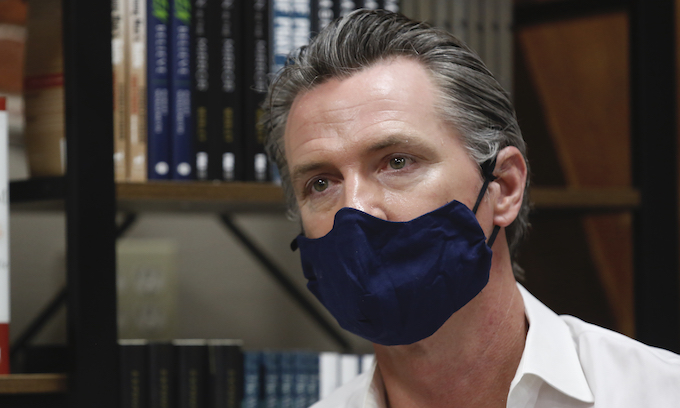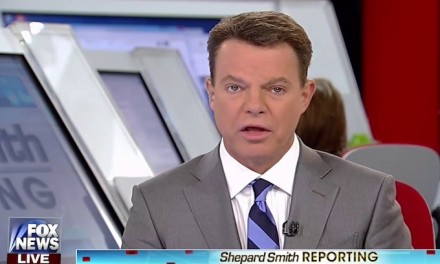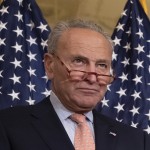Perched behind the counter of his cramped memorabilia shop in downtown Placerville, co-owner Lorenzo Smith isn’t about to tell his customers they have to put on a mask.
It’s a matter of principle, he isn’t convinced it’s necessary, and he doesn’t particularly care that Gov. Gavin Newsom has ordered Californians to wear them.
“Most people up here do not like the governor,” said Smith, whose shop is called Hangtown Originals. “The deal is, you have no right to tell me I have to wear a mask. I’m an American. … I refuse to bow to anybody.”
Newsom issued his order June 18 in an effort to halt a recent statewide surge in COVID-19 infections and hospitalizations since he began relaxing restrictions and reopening the economy more than a month ago.
But Californians aren’t listening — not all of them, anyway. And there seems to be a distinct split between urban California and the rest of the state. In big cities like Sacramento, compliance appears to be fairly high. In suburbs and small towns, Newsom’s edict is more likely to be ignored.
Why the split? Some of it’s cultural; as a rule, rural Californians are more suspicious of what they see as government intrusion into their lives. Some it’s political; rural areas tend to vote Republican, and some residents are taking their lead from President Donald Trump, who has been disdainful of wearing masks. Polls show Democrats are more likely to wear masks than Republicans.
And some of it is simply a byproduct of the geographic footprint of the coronavirus pandemic. While Sacramento County has recorded 2,512 cases and 66 deaths, only 158 cases of COVID-19 have been confirmed in El Dorado County, with no deaths. Placerville has seen just 11 cases.
“We’ve been behaving up here,” Smith said. “I don’t know anybody that’s got it.”
Andrew Noymer, an associate professor of population health and disease prevention at UC Irvine, called the split “lamentable” and said everyone should wear a mask, no matter where they live.
“It’s probably more prevalent than they realize,” he said of rural Californians. “It’s a rural problem and it’s an urban problem and you never know when your county is going to turn the corner and worsen.”
The 15 counties on the state Department of Public Health’s “watch list,” where caseloads have risen and the state is working more closely with local health officials, includes largely rural counties such as Kern, Kings and Imperial.
The budget deal he struck with legislative leaders gives Newsom the authority to withhold $2 billion in state and federal funds from counties that ignore his coronavirus directives, including the mask order. However, the governor has said he believes county officials are cooperating with the state and he doubts he’ll have to exercise that power.
Police agencies throughout Northern California have said they don’t plan to enforce Newsom’s mask order. The Placerville Police Department, for instance, asked residents not to phone dispatchers about violations. “This is not a police issue,” the department said.
Carla Hass, the spokeswoman for El Dorado County, said she’s seen “a fairly high compliance rate” with the mask order in her travels around the county, but said there’s no way to put a number to her observations.
She said the county’s Environmental Health Division will respond to complaints about, say, a tattoo parlor ignoring the mask order. But the division’s focus will be “education and outreach” instead of enforcement, she said.
Where the coronavirus seems far away
The Westfield Galleria at Roseville, the largest shopping mall in the greater Sacramento area, is a haven of compliance with Newsom’s order. On Thursday a Sacramento Bee reporter could hardly find any customers or store clerks not wearing a mask.
Three miles south of the mall, in Roseville’s old downtown area, it was a different story.
When a reporter wearing a mask walked into Perry’s Barber Shop on Vernon Street, the barbers and a half-dozen or so customers — none of them masked — stared at him as if in disbelief. A man identifying himself as the owner declined to be interviewed.
Other shop owners and employees said they encourage customers to wear masks but won’t turn anyone away.
“We can’t force them to have them on,” said Arthur Emciuc, an employee at the First Bank branch in downtown Roseville.
He said about half the bank’s customers wear masks. The bank takes other precautions against COVID-19, such as controlling access to the lobby and having tellers behind acrylic shields, he said.
Sandy Bryan, owner of Tumbleweed & Co., a vintage furniture and home-goods shop, takes a similar approach to the governor’s mask order.
“If they don’t have one, we don’t ask them for a doctor’s note,” she said. “As an entrepreneur, I don’t feel like I have to police the state’s law.”
In the heart of booming south Placer County, Roseville is the third fastest-growing city in California. Neighboring Rocklin is the ninth fastest. But among the quiet hodgepodge of shops and restaurants on Vernon Street, snuggled against the Union Pacific tracks, a small-town charm prevails and the coronavirus seems far away.
“I don’t think of the virus here,” Bryan said. “It’s over there; it’s not here.”
Bryan said she isn’t oblivious to the risk of the coronavirus. She wears a mask at the supermarket, just like every other shopper she sees. She and her employees wear them in Tumbleweed.
Still, she said, COVID-19 isn’t as big an issue in Placer as it is elsewhere. Placer County has experienced 10 deaths and a total of 579 coronavirus infections, a fraction of what’s occurred in Sacramento County. A major increase in hospitalizations just landed Sacramento County back on the state’s “watch list.”
Politics, culture infect California mask debate
Down the street from Bryan’s shop in Roseville, used-car salesman Robbie Bray said he knows why people in Sacramento are more likely to follow the governor’s directive: They embrace “more of a liberal Democrat lifestyle.”
Bray said the mask order is part of the state’s effort to bring people “into submission.” He refuses to wear one and said he doesn’t plan on getting a vaccination for the coronavirus, if and when it becomes available.
“I call it the fear pandemic,” said Bray, who didn’t want the name of his used-car lot used in this story because he was speaking for himself and not his employer. “There’s more fear propagated in the cities than in the suburban areas.”
Well, yes, the political divide between urban and rural California influences how people feel about Newsom’s order. Wearing masks, or not wearing them, has become a symbol of where one stands on the political spectrum.
But some rural residents said it’s a little more complicated than red-vs.-blue. They said there’s a certain feeling of independence — a feeling that transcends voting preferences — that comes with living far away from the cities.
“People moved up here — we have space, that freedom,” said Bridget Scheuffele, an employee at Placerville Hardware, where mask-wearing is optional for customers.
The store calls itself the oldest hardware store west of the Mississippi and seems to embody Placerville’s go-it-alone ethos. Scheuffele said her customers “are not going to live in fear.”
Neither will Judy Garner, 77, from Newcastle in Placer County. She wore a mask during the early stages of the pandemic but went without one the other day as she shopped at the Target on Highway 49, just north of downtown Auburn.
Having recently survived cancer, Garner believes her immune system “is probably pretty good” and she doesn’t see the need for a mask. (The American Cancer Society says some cancer survivors may have compromised immune systems and could be at greater risk to COVID-19).
Yet Garner acknowledged that her feelings about masks are also rooted in “attitude.” She and others resent having the government impose these kinds of restrictions.
“They’re more independent, and they’re tired of being told what to do,” she said.
___
(c)2020 The Sacramento Bee (Sacramento, Calif.)
Visit The Sacramento Bee (Sacramento, Calif.) at www.sacbee.com
Distributed by Tribune Content Agency, LLC.
—-
This content is published through a licensing agreement with Acquire Media using its NewsEdge technology.



















Recent Comments